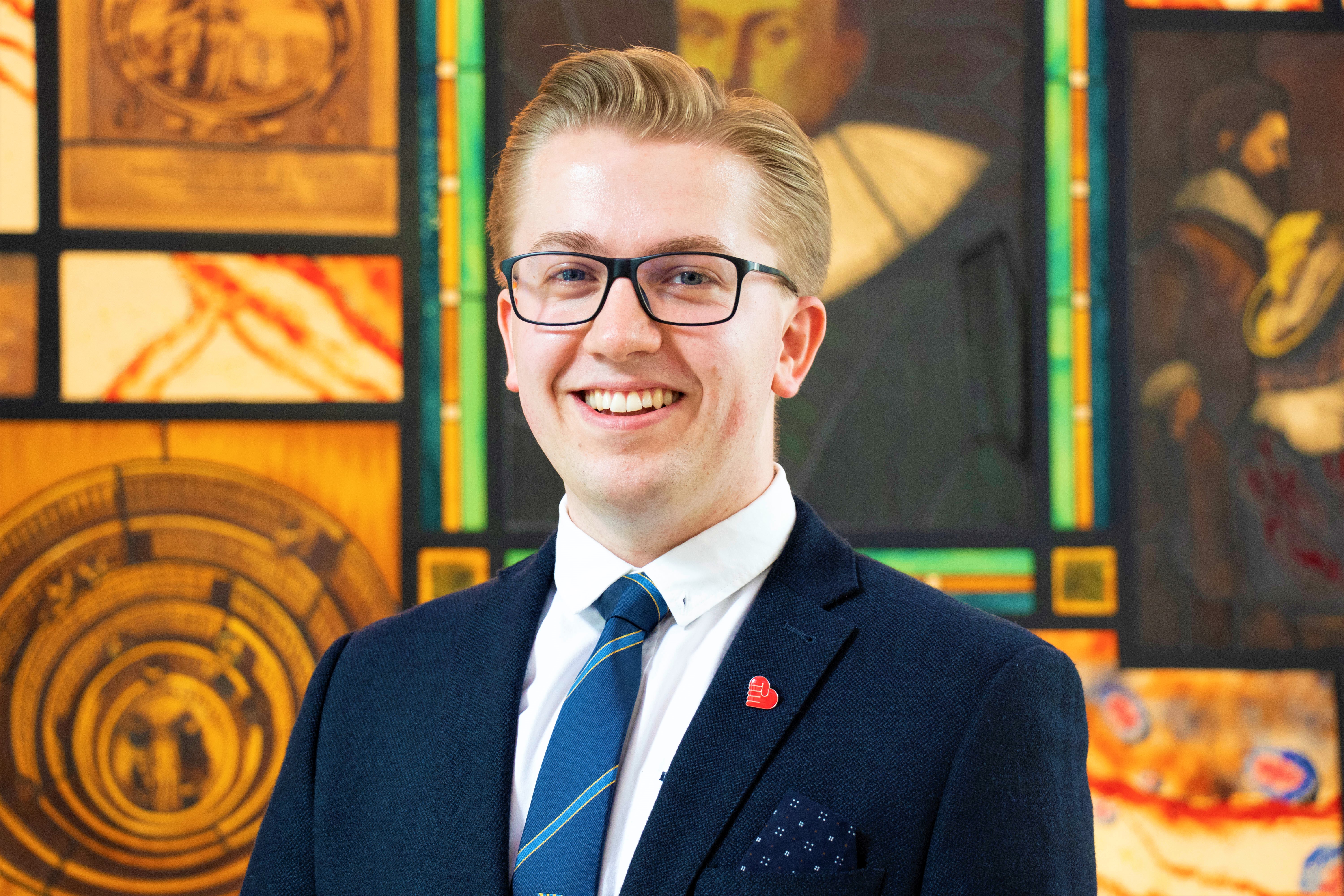
What is your background and career pathway to date?
I was born and raised in North East London – all right, Essex – where my education began at local state schools. My academic career, which is still very much in its infancy, started when I moved from London to Norwich to read Biomedicine at the University of East Anglia. After receiving my BSc In 2016, I completed my MRes in the Cellular and Vascular Aspects of Inflammation and began my PhD in Cardiovascular Pharmacology with Professor Adrian Hobbs, which I am now in the process of completing.
What research are you currently working on?
My PhD project has centred upon the ‘pathophysiological’ roles of the guanylyl cyclases within the heart. These enzymes, which are sensitive to either nitric oxide or natriuretic peptides, maintain the structure and function of the heart through the generation of the intracellular second messenger cyclic guanosine monophosphate (GMP). I have focused on the role of, and interactions between, guanylyl cyclases during heart failure. Heart failure is a common consequence of several cardiovascular diseases (hypertension and myocardial infarction, for example) and a loss of cyclic GMP signalling plays an important role in its pathophysiology. I have been interested in determining whether pharmacologically targeting the guanylyl cyclase pathway reverses the cardiac dysfunction associated with heart failure. This has largely involved inhibiting different enzymes that promote cyclic GMP inactivation, such as the phosphodiesterases, and determining which guanylyl cyclase drives the beneficial effects of cyclic GMP.
How did you choose your PhD project?
During my first year at the WHRI, I performed my Masters research project in Professor Hobbs’ lab. I soon realised that not only did I like what I was working on but also whom I was working with. The project piqued my curiosity and the people encouraged me. I was not going anywhere else for my PhD.
What have you enjoyed the most during your PhD?
Having the opportunity to work with and learn from some outstanding scientists.
What does a typical week look like to you as a cardiovascular pharmacologist?
Half of my time is spent performing experiments. The other half is spent repeating them.
What do you like and dislike about your current position?
The ignorance and the failure that comes with being a scientist. It is disconcerting when one realises that there are cracks – chasms, in my case – in one’s knowledge. And it can be downright painful to fail. To botch the experiment, to abandon the false hypothesis. But ignorance and failure are paramount, because our ignorance impels us to ask more questions, while our failures direct us closer to the answers. Stuart Firestein said that a student becomes a scientist by getting comfortable with these two things. I am slowly making progress.
What are you looking forward to in terms of research?
George Bernard Shaw said that science is always wrong because it never solves a problem without creating ten more. I am looking forward to the unanticipated problems.
What sort of outreach activities do you engage in?
I am sure that I do not participate in as much outreach as I ought to. I have been involved with Pint of Science, which has been very successful at cultivating communication between scientists and the public. I know from experience that evenings spent discussing ideas over beer are intoxicating, and that was certainly no exception.
How do you see your career progressing in the future?
A few months ago, I was fortunate enough to be awarded a Fulbright Scholarship to move to Yale University for my first postdoc with Professor William Sessa. Whereas my PhD has centred on the heart, my scholarship will focus more on the vasculature. I am looking forward to experiencing a new research environment and to learning many new things. After that, who knows?
What has been your biggest achievement in your career so far?
Becoming a Fulbright Scholar.
What do you enjoy doing outside of work?
Reading. Going to plays and concerts. Eating, drinking, and laughing with family and friends.
What advice would you give to a young person interested in STEM?
Find a subject that interests you and a mentor who will nurture you. Whom you work with is as important as what you work on. And remember that no one else really knows what they’re doing, either.
What are your top tips for networking in this field?
Show up, smile, and say hello.
Whom do you look up to academically?
My mentor, Professor Adrian Hobbs, whose encouragement and advice is endless, and who has instilled in me the maxim that ‘if you don’t try, you won’t know’.
How would you like to be remembered?
I hope that it is far too early for me to think about what my legacy will be.
Rapid-fire round with Michael
- Favourite Book? The Lord of the Rings.
- Favourite Movie? The Lord of the Rings.
- Favourite Scientist? William Harvey (past), Sir Paul Nurse (present), Professor Frink (fictional).
- Sweet or savoury? Savoury.
- Tea or Coffee? Tea.
- Night in or night out? That depends on how much beer is in the fridge.
- UK or USA? Ask me again after my Fulbright Scholarship.
Comments
If you are a British Pharmacological Society member, please
sign in to post comments.